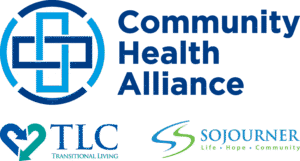Questions and Answers (FAQ)
Program FAQs
What is the cost of outpatient treatment at Community Health Alliance?
- The cost of outpatient treatment for substance use disorder at CHA is based on your individual clinical needs and the services you receive. We accept most Medicaid, Medicare, and private insurance plans to help offset the cost.
Will Community Health Alliance help patients secure insurance?
- Yes. Our team can assist you with applying for insurance. We take pride in guiding patients through Medicaid and Medicare enrollment to ensure access to care.
How much does treatment cost without insurance?
- If you don’t have insurance, we will search for funding opportunities so we can support you on your recovery journey. You’ll never be turned away due to inability to pay.
What if I can’t pay for addiction treatment?
- At Community Health Alliance, we believe everyone deserves access to care. If cost is a barrier, our staff will collaborate with you to find additional resources—such as grants, or community-funded support—to ensure you receive the treatment you need.
How long is your program?
- Every individual has unique needs and program lengths depend on those needs. However, on average, residential treatment lasts 45 days.
Can I smoke?
- Smoking is allowed in designated areas at our facilities. However, vapes and rolled tobacco is not allowed.
Can I have my phone while in treatment?
- Cell phones in residential treatment are not allowed due to privacy concerns but phone calls on residential phones are allowed.
What are some visitation rules I need to know?
- We do not allow regular in-person visits, but clients are encouraged to invite supportive individuals to participate in family therapy sessions as part of their recovery. Child visits are the exception and are allowed Monday–Friday from 3–6pm, and on weekends for up to 3 hours between 12–8pm.
Provider FAQs
What is addiction medicine and how is it different from other medical specialties?
Addiction medicine focuses on identifying and treating conditions caused or worsened by substance use (e.g., nicotine, alcohol, opioids, stimulants). Providers in this field are specially trained to:
- Consult with other clinicians to address substance-related conditions
- Connect patients with treatment programs designed for recovery
- Integrate social, behavioral, and pharmacologic approaches
- Conduct research to improve prevention, early intervention, and treatment of addiction
Can a person come for detox and not participate in counseling at CHA?
- Community Health Alliance believes that detox without therapy and social support doesn’t promote lasting recovery. All detox patients must also engage in counseling and support services to improve outcomes and reduce relapse risk.
What is Suboxone?
- Suboxone is a medication (buprenorphine/naloxone) used to treat opioid use disorder. Buprenorphine helps reduce cravings and withdrawal symptoms, while naloxone deters misuse if injected. It’s taken sublingually (under the tongue). CHA also prescribes buprenorphine-only formulations (like Subutex) for individuals who cannot take naloxone.
Do you provide buprenorphine (Suboxone) without requiring participation in counseling?
- No. At CHA, buprenorphine (Suboxone) is provided only as part of a comprehensive treatment program, which includes counseling, peer support, and case management.
I’m addicted to prescription pain medication, but I still have pain. What can CHA do to help?
- CHA works collaboratively with pain management specialists to develop personalized treatment plans. These may include alternative pain therapies, tapering strategies, and medications to safely address both pain and addiction.
Are patients required to visit CHA every day to get their Suboxone prescription?
- Suboxone is less strictly regulated than methadone and can be prescribed for multi-day or weekly use, depending on your treatment progress and recovery stability.
Who can prescribe buprenorphine (Suboxone) at CHA?
- Only licensed physicians with the appropriate DEA certifications are allowed to prescribe buprenorphine. CHA maintains a team of credentialed providers to initiate and manage treatment.
How is buprenorphine (Suboxone) supplied?
- Suboxone is available in 2 mg or 8 mg sublingual (placed under the tongue) tablet forms. CHA clinicians will determine your starting dosage based on clinical assessment.
Where can patients fill their Suboxone prescription?
- CHA dispenses Suboxone at most of our facilities. It is also available at many commercial pharmacies, including major chains and independent pharmacies.
Does Community Health Alliance treat adolescents?
- Yes, in some cases. In Ohio, minors usually need parental consent for treatment, but exceptions exist. Youth 14 or older can consent to outpatient mental health services (not including medication) for a limited number of sessions. Minors may also consent to treatment for conditions related to drug or alcohol use.
Ready to begin?
If you’re ready to start a personalized addiction treatment program at Community Health Alliance, we’re here to help.
Call us today at (513) 896-8300 to get started.

